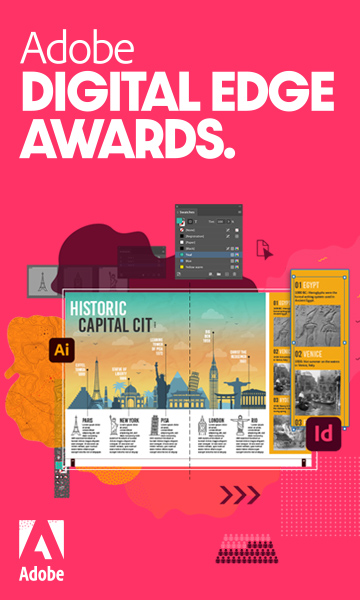Higher education leaders explain how knowledge of digital technologies is crucial for students and staff to thrive in the modern world
Universities must equip students with the know-how to thrive in the Fourth Industrial Revolution and provide staff with the digital skills to deliver new modes of learning and assessment.
At a time of profound transformation, higher education industry leaders say digital literacy has never been more important for staff and students.
Professor Amanda Broderick, vice-chancellor at the University of East London (UEL), says that the institution strives for a “golden triangle” of upskilling staff, giving students a higher level of digital proficiency and optimising operations through digitalisation.
The university’s Professional Fitness and Mental Wealth programme is embedded in all of its courses. As well as incorporating emotional, social, physical and cultural intelligence development, the programme equips students with “a higher level of digital proficiency than one would normally come out with if not doing a computing degree”.
Mark Andrews, a pedagogical evangelist at Adobe, says that during this time of unprecedented disruption the higher education sector has placed a renewed focus on the learning and assessment experience, with institutions examining their methods for authentic assessment.
“When students are asked to look at things in different ways it can elicit a deeper understanding or perspective that informs their thinking,” he says. “Asking students to create a video or an infographic or an augmented reality experience, as opposed to writing a report, will mean they have to look at a situation more deeply or in a new and novel way.”
To encourage creative assignment submissions, Adobe has launched the Digital Edge Award, a competition for students with a top prize of a year’s tuition (£9,250). To enter, students submit a piece of work produced as part of an assignment for their studies that they think exemplifies digital literacy – and that was created using Creative Cloud. They can submit an existing piece of work or an assignment reimagined specifically for the Digital Edge Award.
As a consequence of the UK-wide lockdown, UEL reviewed its methods of assessment. The university’s degree-awarding gap, which measures the difference between outcomes for white students and students from black and minority ethnic backgrounds, almost halved in one year.
Broderick explains: “We had to redesign that assessment in a short period of time, and it wasn’t about learning objectives, it was purely about, ‘Is this the best way of assessing those learning objectives? Is there a way that supports both the quality in terms of the academic content and the employability to be able to generate better outcomes?’ And that certainly seems to have been the case”.
For graduates who have improved or refined their digital literacy at university, there are clear benefits when entering a restricted and fast-changing job market.
Roger Emery, head of learning technologies at Solent University, says that the modern student was required to be comfortable with a range of online platforms. Their journey with digital technology would typically start with consumer platforms such as Instagram before moving on to learning platforms such as library and research systems, and finally business platforms used by employers.
At Solent University, students nearing assessments are offered targeted technology workshops on everything from preparing professional PowerPoint presentations to mastering more technical software. Emery says that rather than focusing on specific programmes, students should be given the confidence to work with a variety of digital tools.
“[Digital platforms are] continuously changing, so I think we need to be teaching people confidence and at the same time we need to get the technology companies to build in intuitiveness by making it simple to use,” he says.
“Good digital skills give students the adaptability to pick up a new tool and just run with it, not be scared of it. They can assume that most things are going to work if you crack on with it, rather than find it a barrier.”
Having demonstrable digital skills can also help graduates stand out in in-demand areas for employers. A recent Adobe study, which analysed more than 50,000 EMEA job postings across 18 fields, found that “communication” (63 per cent of postings), “creativity” (54 per cent) and “collaboration” (48 per cent) were the most sought-after skills.
However, after analysing more than 50,000 CVs, the same study found that these skills were rarely listed. “Communication” featured in 12 per cent of CVs, “creativity” in 13 per cent and “collaboration” in 6 per cent. Andrews says that often intangible “soft” or “smart” skills like these could be made tangible, for example, by showcasing digital artefacts in a portfolio.
While group tasks are nothing new at university, digital tools can help drive these collaborations and create more opportunities for student-led discussion.
“For as long as people can remember, students would leave a lecture and three or four of them would get together and go to the café or the student union to continue the conversation in a very casual grouping,” says Emery. “That can happen online now, with platforms such as Microsoft Teams or Zoom or WhatsApp.”
Ensuring students have the latest digital knowledge and capability is one thing, but staff cannot be left behind when it comes to upskilling.
Broderick says that digital platforms had helped drive automation in certain business areas, for example student recruitment and customer services, while staff had boosted their own competence with digital tools.
“More than 80 per cent of our academic and academic-related staff are now Microsoft Innovative Educator certified. I don’t think you’ll find that anywhere else,” she says.
As university courses evolve to take advantage of emerging technologies, Andrews says that the sector could open up to new demographics of learners: “For example, non-traditional learners who actually thrive by developing or exhibiting their knowledge in less traditional ways. Maybe they are not so good at academic writing but are really creative and really good at being able to tell that story in a video or podcast.
“With Creative Cloud, I think we’ve got a toolset that can help support that strategy within institutions to open up education to a wide variety of learners that maybe wouldn’t have thought about going into higher education in the past.”
Broderick stresses that higher education’s digital revolution must be inclusive. “Every time we move through different industrial revolutions, we see that certain sections of society are excluded,” she says. “Our core strategy is not only about addressing or increasing the strength of the talent pipeline, addressing that skills gap, it’s also about increasing the diversity of the talent pipeline.”
Find out more about Adobe and the Digital Edge Award.



























